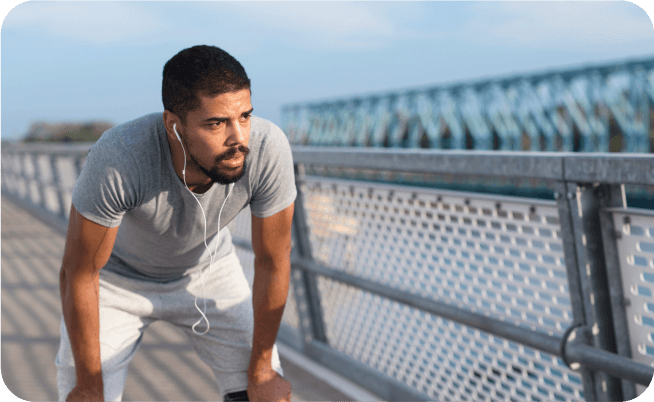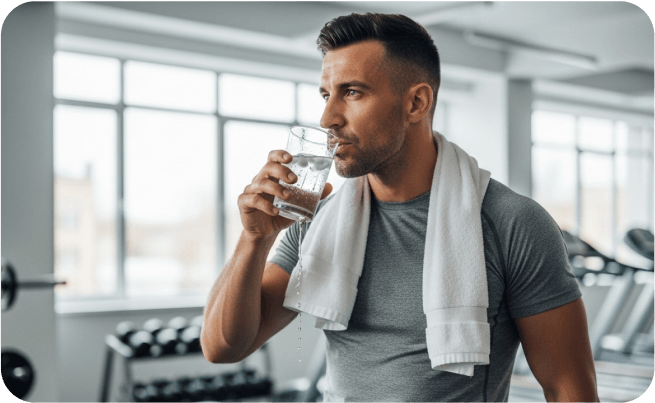
Hydration for Athletes: Why It Matters, Get It Right
When we think of athletes, we think of speed, strength, and stamina. But behind all the training, sweat, and performance lies something very basic—hydration.
Water is not just important. It is essential. For athletes, it is just as important as food, rest, and practice. Without enough water, the body cannot work well. Muscles cramp. Energy drops. Focus disappears. That is why smart athletes do not just train hard. They hydrate smart.
Athletes lose water faster than others because of intense workouts, heavy sweating, and long training hours. Along with water, they also lose minerals that help muscles work properly. If they do not replace what they lose, it can affect their strength, energy, and focus. Even a small drop in hydration can lead to slower movements, cramps, or even injuries. That is why proper hydration is not just a suggestion; it is a must.
Now let us understand what happens. Along with water, they also lose minerals that help muscles work properly. If they do not replace what they lose, it can affect their strength, energy, and focus. Even a small drop in hydration can lead to slower movements, cramps, or even injuries. That is why proper hydration is necessary.
What Happens When a Body Is Dehydrated

Dehydration means the body does not have enough water to do its normal work. For athletes, this can lead to dizziness, muscle cramps, headaches, and even confusion.
They may feel tired, get out of breath quickly, or struggle to keep up during a match or workout. What is tricky is that thirst is not always a good signal. Many athletes do not feel thirsty until they are already dehydrated. This is why planned hydration is smarter than waiting to feel dry-mouthed.
The right time to hydrate for athletes is 400 ml to 600 ml of water one to two hours before exercise. This gives the body time to absorb and prepare. During the activity, taking small sips every 15 to 20 minutes helps the body stay balanced, especially during long or intense sessions. After training or matches, it is important to drink again within 30 minutes, around 500 to 750 ml of fluid, to help the body recover. This is when repair and the body need to refill.
Are Electrolytes Important to Stay Hydrated?

Electrolytes are those small helpers for your muscles that keep heartbeat in rhythm; they also help your body hold onto water you drink. When you sweat a lot and do not replace these minerals, you may feel weak, light-headed, or even get muscle cramps. That is why hydration is not just about water; it is also about keeping the right balance of fluids and salt.
Hydration Habit to stay Hydrated

Hot and humid weather means even more water loss. Sweat levels can drastically go up. And the body works harder to stay cool. So, athletes training outdoors in summer need to be extra careful. They may need more fluids than usual, even if they are just doing the same workout. In such cases, cold water, a wet towel, or hydrating fruits can be helpful before and after training.
How to Stay Hydrated for Athletes

As mentioned previously, staying hydrated is not about drinking a lot of water all at once. It is about drinking the right amount at the right time. For athletes, this needs to become a daily routine, not just something to do before a game.
Start your day with a glass of water as soon as you wake up. Your body loses water while you sleep, so this first glass helps you feel fresh and ready.
Throughout the day, carry a water bottle with you. Sip small amounts often instead of waiting to feel thirsty. If your pee is light yellow, you are well hydrated. If it is dark, drink more.
After exercise, do not forget to rehydrate. Try to drink 500-750 of water or an electrolyte drink within 30 mins of finishing. You can also eat fruits like watermelon or oranges that help replace lost fluids and minerals naturally.
Eating hydrating food during the day also helps. Include watery fruits and vegetables like cucumber, tomato, lettuce, pineapple, and yogurt. Avoid sugary soda, packed juices, and energy drinks to avoid dehydration.
Most importantly, make hydration a habit. Set a reminder, use hydration tracking apps, or link it with daily tasks like meals or workouts. When staying hydrated becomes part of your lifestyle, you feel more energetic, focused, and strong, both on and off the field.
Final Thoughts
To sum it all up, hydration is one of the simplest and most effective ways to boost performance. It helps athletes stay strong, think clearly, move faster, and recover better. When your body is hydrated, your heart pumps better, your brain stays focused, and your muscles work smoothly. Whether you are a young athlete, a weekend player, or someone training for fun, water should be your best workout partner.
So do not wait to feel thirsty. Hydrate before your match, during your workout, and after every run. Make water a habit, and not just for the sake of it. Have smart fluids that also adds up to your drink like adding electrolytes.
Download WaterMinder app to keep a track of your daily hydration levels with ease today!
